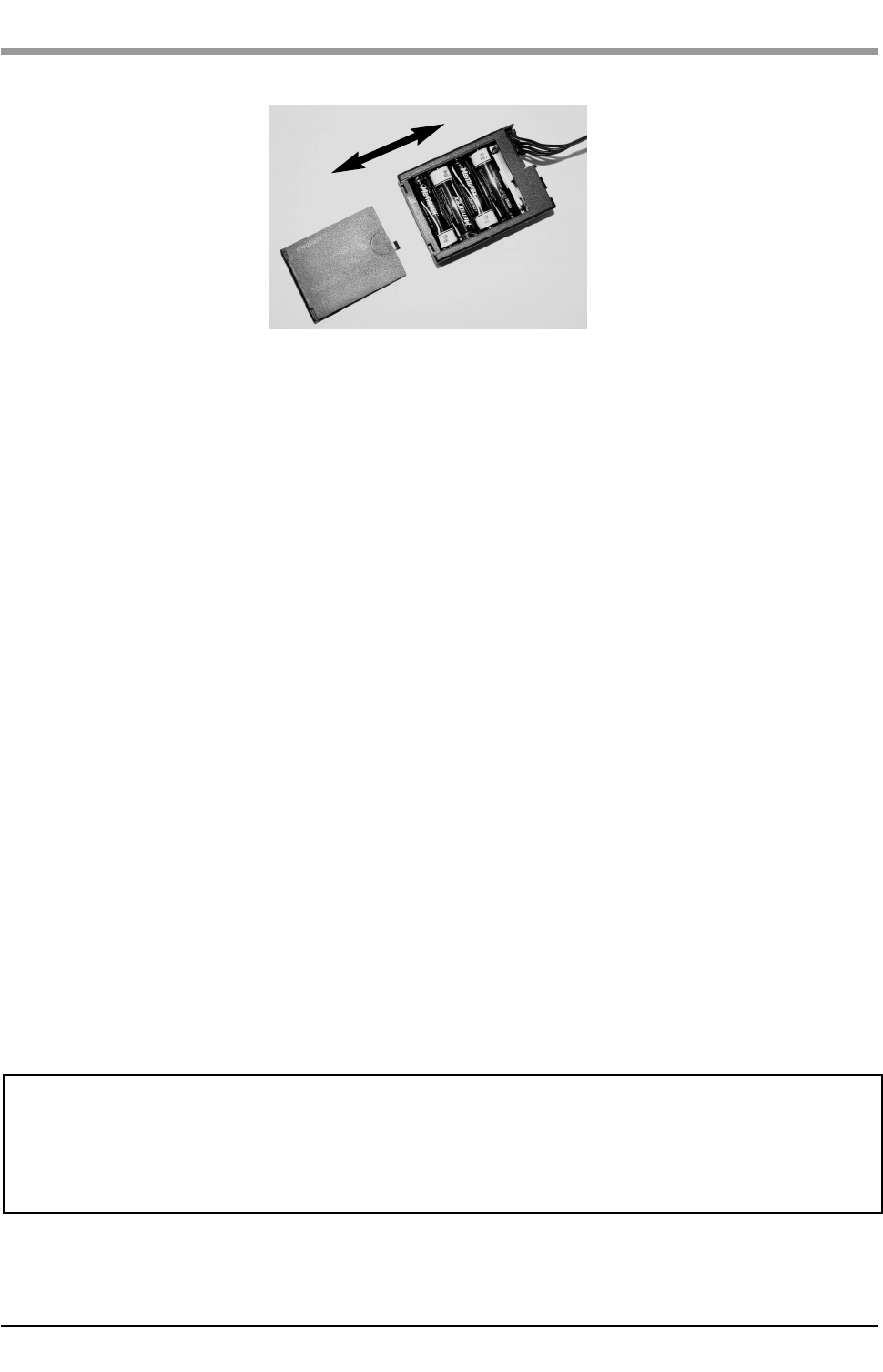
Slide back the battery compartment cover, insert 4 suitable batteries and replace the cover
If the batteries lose power, the flame height can be adjusted by manually turning knob B (see page 32)
NOTE
Please note the placement of the remote control (temperature sensor) is important to assure proper tempera-
ture regulation. Generally a more constant temperature will be assured, if the remote control is not too far
from the gas appliance. Before switching to AUTO or TIMER mode press either button ( A ) or ( B ) to
verify the reception (when the send symbol appears in the remote control display, the receiver red light
must illuminate). For the AUTO or TIMER mode to function correctly the remote control must remain
within range of the receiver. The remote control should not be used in very close proximity to the receiver
(less than 1m / 3ft) as this could in very rare cases, produce a electronic switch error. This error could block
the motor when the knob reaches the end points of its turning radius. The knob must then be turned manu-
ally to free blockage.
The temperature is controlled by activating the motor for a specific length of time to adjust the appropriate
flame height. This time is calculated by the remote control and depends on variables such as room size,
heater capacity, battery power etc. Therefore a few cycles are necessary before an optimum is achieved. If a
low flame is sufficient to provide enough warmth to the room, then the appliance will cycle between low
fire and off. This allows longer periods with the flame on and provides a more uniform room temperature.
Aarrow Sherborne GSL CF 37
USER INSTRUCTIONS
It is recommended to turn the combination control either to the off or pliot position if the appliance is left unattended for longer
periods (e.g vacation) so that it cannot receive commands from the remote control. Exercise caution when leaving the appliance
unattended, in exceptional cases sound waves from sources other than the remote control can cause changes in flame height
adjustment.
Fig. 23


















